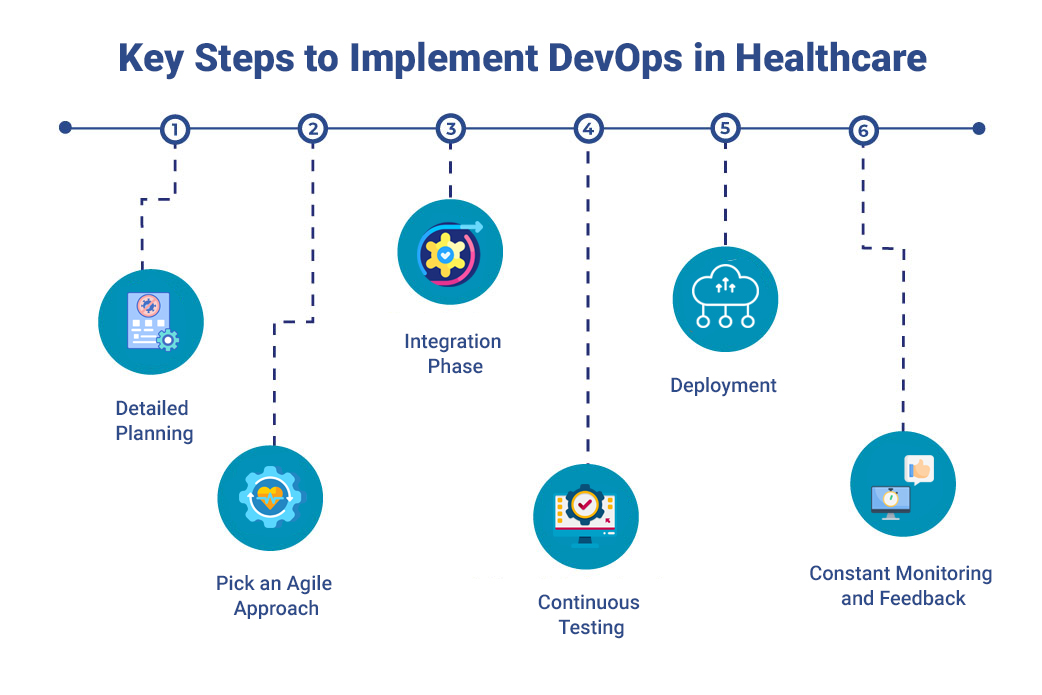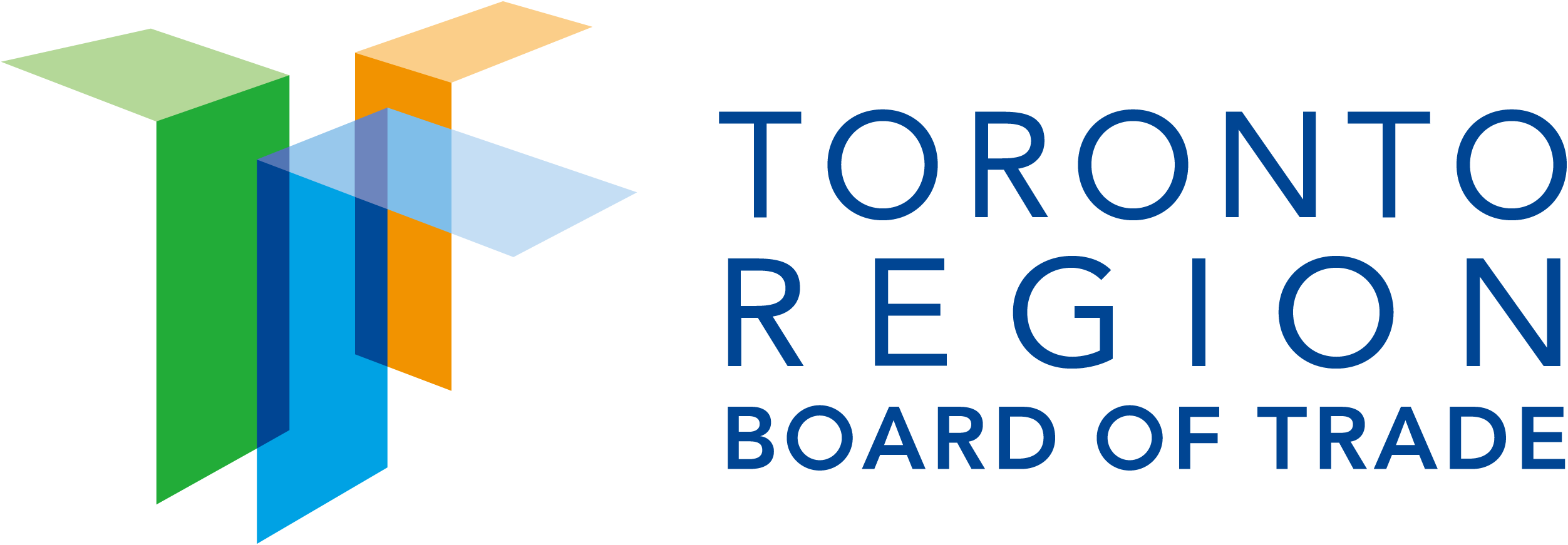According to Research and Markets, the DevOps market size is projected to grow by 12.85 billion by the year 2025. This growth is attributed to the increased demand of diverse businesses to automate operations, the adoption of agile approaches, and the need for improved communication among different teams. As a result, the surge in implementation of DevOps is seeing an upward trajectory across various domains and the healthcare industry is no exception here.
Implementing DevOps in the healthcare sector is significant for various reasons. It includes minimizing healthcare costs, embracing new technologies, and improving patient outcomes. This showcases that DevOps will stay progressive, making healthcare providers count on modernizing their facilities and delivering quality, patient-centered care.
So, in this blog, we will cover the working of DevOps and how DevOps in Healthcare can be implemented to leverage all the potential benefits.
Working of DevOps Explained?
To understand the workings of DevOps, firstly know that the engagement among the operations and development team is significant.
Software engineers are involved in the complete journey of the software lifecycle and not just restricted to the development phase. It contributes to the constant loop of development, deployment, integration, testing, and monitoring. Thereby, ensuring the delivery of value and satisfaction to the end users.
Furthermore, DevOps automates processes, eliminating manual efforts and leading to quick development. The expert team gets access to advanced tools and tech stack to execute operations and remove communication barriers, ensuring seamless development and deployment.
Reasons for Implementing DevOps in Healthcare
Implementation of DevOps in the healthcare sector brings multiple advantages. It is an effective methodology for building quality software development and delivering accuracy, speed, and efficiency.
The further impact can be seen in the form of benefits below that why implement DevOps in the healthcare industry.
Improved Communication and Collaboration
DevOps in healthcare is essential to enhance communication and collaboration among developers, operations teams, IT engineers, and healthcare service providers who are working towards achieving common objectives. It aids in establishing a more relevant, agile, and responsive ecosystem in the healthcare facility.
Furthermore, when the healthcare system is equipped with the right tools and technologies, it becomes convenient to adapt to the changing needs of both patients and medical professionals.
Efficient Data Management
Data plays a vital role in gathering valuable insights about the patient’s vital expectations and developing solutions accordingly. Thus, resulting in increased productivity and achieving a competitive advantage over competitors. However, managing large amounts of data manually or with legacy tools becomes quite cumbersome.
Fortunately, DevOps offers varying tools like big data apps and pipelines to easily process data in bulk. For example, data like electronic health records, lab reports, and patient’s other details, can all be easily handled and leveraged for final analysis.
Data Security and Compliance
For any healthcare organization, data safety would be a priority. Hence, they must implement a streamlined process workflow to minimize any chances of data fraud. DevSecOps, the core principle to ensure security integration, helps healthcare service providers leverage pipeline implementations to analyze any vulnerabilities. Further, the engineers can address these bugs during the development lifecycle.
Additionally, the ‘least privilege,’ principle helps assign access to only those with the highest privilege level. Individuals and machines with low authority levels can’t access the system’s critical areas. Thus, ensuring enhanced security of the organization’s apps and processes.
Process Automation
Considering the implementation of DevOps in healthcare benefits with process automation. Healthcare facilities can easily build apps that are compliant with SLAs. Furthermore, automation will streamline the organizational workflows.
This enables efficient resource management along with smooth software deployment and quick release of top-notch features.
Improved Organizational Services
DevOps benefits healthcare organizations with effective CI/CD pipelines that help incorporate essential capabilities into the system more quickly. It helps increase patient trust and improve operational efficiency. For instance, features such as self-check-ins speed up the processing of patients. Moreover, e-prescriptions allow patients to get their medicines without even having to visit the facility.
You can easily introduce all these features with DevOps, addressing the patient’s requirements for quick and convenient services. In addition, it will enhance organizational efficiency enabling you to deliver better services.
Key Steps to Implement DevOps in Healthcare
Following proper steps is essential for efficient adoption of DevOps and modernizing your healthcare facility. Let’s check out below.

Detailed Planning
Begin with examining the operational and development activities to determine the scope of DevOps implementation. Check the availability and the need for technical or human resources, SOPs, security adherence, and more during the planning phase only. Additionally, you can connect with different teams to discuss task management.
Pick an Agile Approach
Whenever developing a system with DevOps, one widely preferred agile methodology is Scrum. You need to adopt its three main elements which include backlog, Sprint, and Sprint planning.
The scrum backlog consists of task records that can be further arranged by the DevOps team as per their requirements and pull the subsets of specific tasks into a sprint. Further, the role of the sprint is to offer a specific timeframe for task completion. Afterward, the sprint planning helps decide which task to shift from the backlog for the next sprint.
Integration Phase
The next step is to set the continuous integration (CI) server responsible for required system modifications and code module enhancements in the central repository. The CI further simplifies the sharing and merging process of cross-departmental code. Therefore, resulting in efficient and quick code development while preventing any deployment delays.
Continuous Testing
The code is rigorously tested to check for bugs and errors and assess its proper functioning. In case, the testing shows unexpected results, the bugs and errors are identified and addressed asap. On the other hand, if the outcomes are positive, the solution is delivered to the production system for deployment.
Deployment
Once the testing is done, the next step is the software deployment with automated and rigorous distribution to ensure its quick access to end-users.
Constant Monitoring and Feedback
Constant monitoring helps ensure optimal software performance, detecting possible security concerns and compliance issues throughout the DevOps journey. The system keeps on sending the feedback to the DevOps team. If there’s any issue, it will be raised and addressed in real time.
Wrapping Up
Undoubtedly, the healthcare industry is transforming, requiring flexible and efficient IT setups for smooth operations. Here, DevOps contributes by helping businesses speed up the development of digital products and enabling efficient utilization of resources. Moreover, healthcare businesses incorporating DevOps benefit from CI/CD workflow, automation, and enhanced engagement.
So, if you are looking for an experienced partner for DevOps implementation services, choose Orion eSolutions. We possess all the right tools, technologies, and expertise to implement DevOps in healthcare and across other verticals. You can rely on us to hire DevOps engineers with years of experience in providing reliable software development services.









